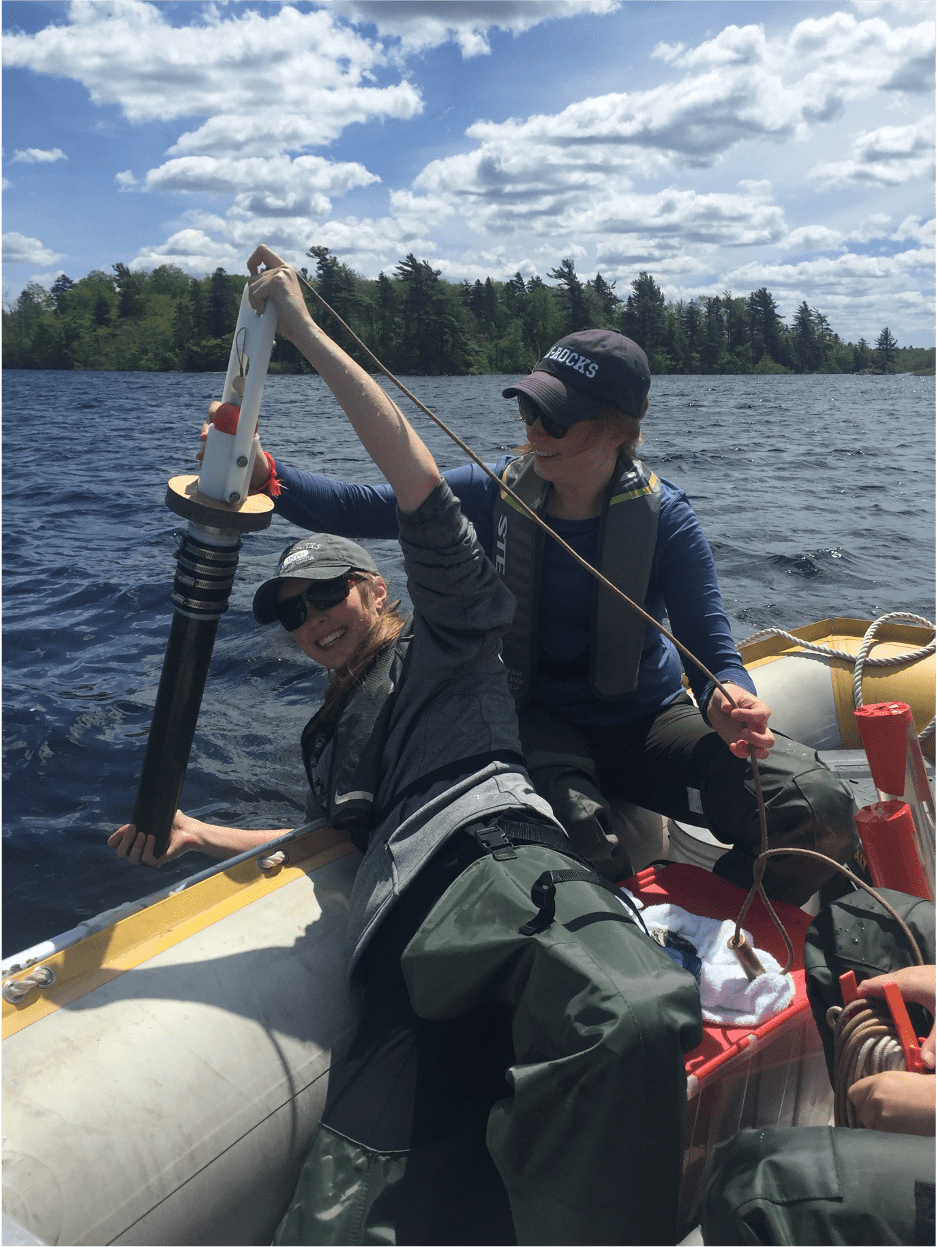
In the fall of 2020 Acadia University announced the launch of a new Master of Science in Environmental Science Program. This is an exciting development for the university, now students engaged in interdisciplinary environmental science research will have the option to choose a degree program that accurately reflects their work. Dr. Rob Raeside and Dr. Ian Spooner spearheaded the application to MPHEC for the degree and the graduate coordinator is Dr. Nelson O’Driscoll (PI of the Mercury Research Lab in the K.C. Irving Environmental Science Centre). Dr. O’Driscoll says, “This MSc program in Environmental Science is a great option for students interested in pursuing graduate research on a wide range of environmental science topics”.
Current Acadia graduate students are already transferring into the Environmental Science degree option. Student Lauren Muzak Ruff will be the first graduate of the new program, she successfully defended her thesis on December 16, 2020. Lauren is supervised by Dr. Ian Spooner, Research Director at the K.C. Irving Environmental Science Centre and Dr. Mark Mallory, Canada Research Chair and biology professor at Acadia University.
Lauren’s research focused on the impacts of historical deforestation (logging) and hydroelectric development (damming) on Gaspereau Lake, Nova Scotia. Using lake sediment cores, she studied metals and other indicators to understand how human manipulation of the environment affected lake productivity over time. Lauren also incorporated historical data and local knowledge into her research and is passionate about her research approach. “I am incredibly proud of this thesis as I feel that it encompasses much of what it means to be an environmental scientist. The scientific data provides you with the pages of a textbook, but if you don’t do the background reading, or take the time to listen to the whole story, you may miss an important piece of the puzzle.”
Lauren came to Acadia in 2019 to work with Dr. Ian Spooner, Dr. Mark Mallory and Ducks Unlimited Canada on her thesis project. Lauren says connecting with Dr. Spooner to study at Acadia was a bit of good luck and good timing, but she is thrilled to have found a project that allows her to integrate scientific methods with other types of historical data to understand the natural environment and how humans have influenced it.
Research projects often build on one another and Lauren’s is no different, building off work started by Adam Godfrey, MSc 2018, the first Arthur L. Irving Graduate Scholarship recipient. Lauren explains, “Adam focused on the impacts of historical logging in the West Branch of the Avon River. In Adam’s sediment cores, he observed an unexpected increase in strontium concentrations which he attributed to a sudden run of gaspereau (Alosa pseudoharengus) in the river. Gaspereau migrate annually from the ocean to freshwater lakes to spawn where they deposit nutrients which contribute to lake productivity. Gaspereau are not known to visit Adam’s study site due to the construction of the causeway in Windsor, Nova Scotia. Adam correlated the increasing strontium to a sudden run of gaspereau (observed by locals) when there was a failure in the sluice gates of the causeway in the 1970s. Adam hypothesized that strontium could serve as an indicator of gaspereau visitation which could assist in our understanding of gaspereau residency in Nova Scotia lakes and their impact on lake ecosystems.” However, science is not often straight forward and Lauren’s findings from her study sites were inconclusive in terms of the contribution by gaspereau to lake productivity. Yet, the research conducted by both Lauren and Adam will provide the groundwork for future Acadia honours and MSc students as they attempt to further investigate the importance of gaspereau to lake productivity in Nova Scotia.
When asked about her passion for environmental science Lauren says it comes from a place of ethics, caring for the environment should be an essential part of the human-nature relationship. “I think it’s incredibly important that we understand our environment, how it functions and what our impact on that function is. A healthy environment ensures that we are healthy and have the resources we as humans need. Science allows us to discover and understand, but I think environmental science drew me in because there is a lot of opportunity to tackle real-world problems and apply solutions.” In the future Lauren hopes to share her passion and help the next generation understand and connect with the natural world, particularly through environmental education.
Humbly, Lauren says, “Many students have come and gone who have completed theses that were essential to us getting to where we are today. Many of Ian, Mark, and Nelson’s students deserved to be the first to get an MSc ENVS as that best reflects the work they did”.
We are confident there will be many more graduates of the MSc Environmental Science program in the future as the degree reflects the important research that happens here at Acadia and in the K.C. Irving Environmental Science Centre.


 Acadia University
Acadia University